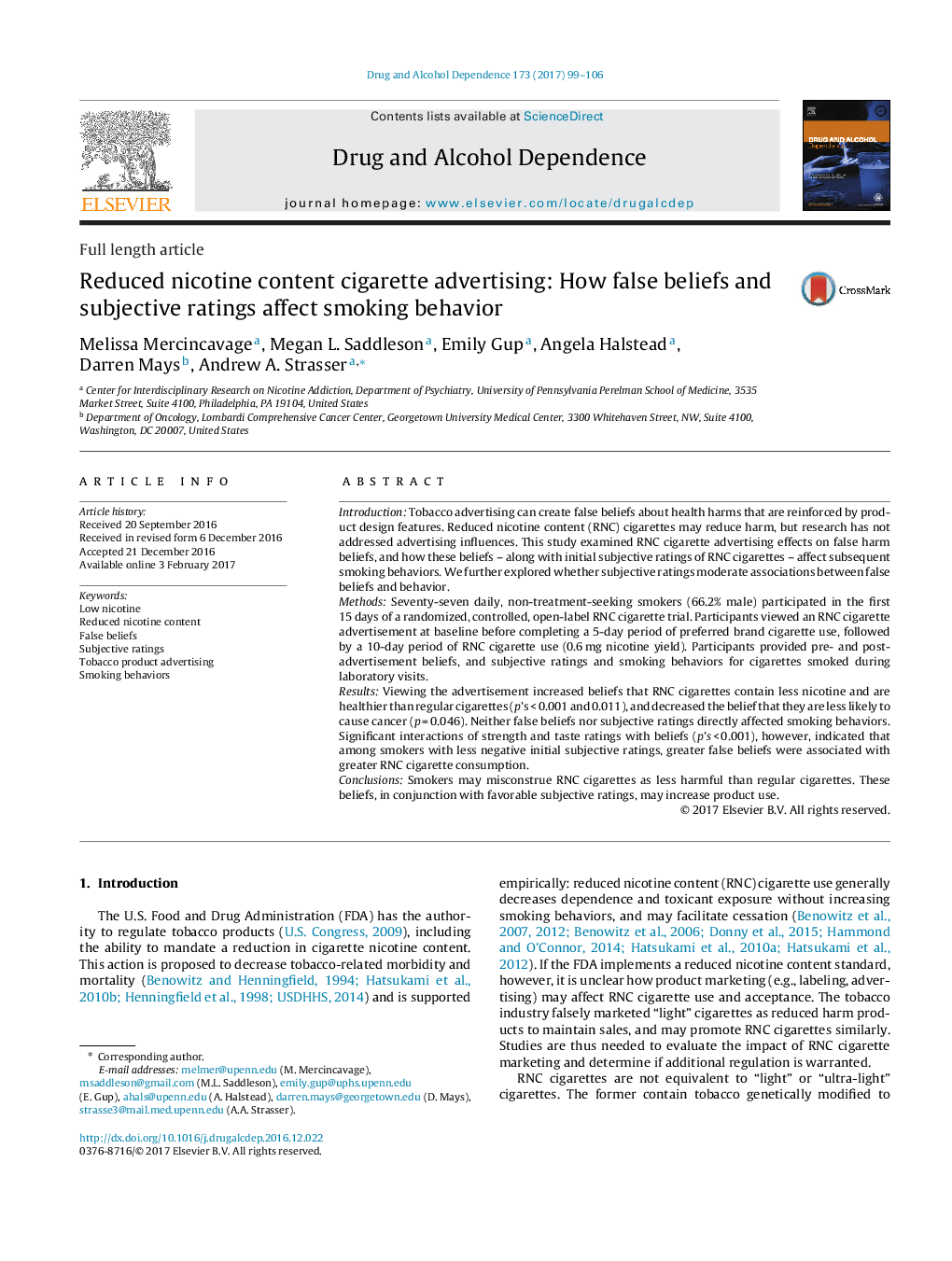| کد مقاله | کد نشریه | سال انتشار | مقاله انگلیسی | نسخه تمام متن |
|---|---|---|---|---|
| 5120159 | 1486118 | 2017 | 8 صفحه PDF | دانلود رایگان |
- Advertising affected false beliefs about risks of using reduced nicotine content (RNC) cigarettes.
- Neither subjective ratings nor false beliefs directly influenced product use.
- Subjective ratings and false beliefs interacted to affect RNC cigarette use behaviors.
- False beliefs, together with favorable subjective ratings, increased consumption.
IntroductionTobacco advertising can create false beliefs about health harms that are reinforced by product design features. Reduced nicotine content (RNC) cigarettes may reduce harm, but research has not addressed advertising influences. This study examined RNC cigarette advertising effects on false harm beliefs, and how these beliefs - along with initial subjective ratings of RNC cigarettes - affect subsequent smoking behaviors. We further explored whether subjective ratings moderate associations between false beliefs and behavior.MethodsSeventy-seven daily, non-treatment-seeking smokers (66.2% male) participated in the first 15 days of a randomized, controlled, open-label RNC cigarette trial. Participants viewed an RNC cigarette advertisement at baseline before completing a 5-day period of preferred brand cigarette use, followed by a 10-day period of RNC cigarette use (0.6 mg nicotine yield). Participants provided pre- and post-advertisement beliefs, and subjective ratings and smoking behaviors for cigarettes smoked during laboratory visits.ResultsViewing the advertisement increased beliefs that RNC cigarettes contain less nicotine and are healthier than regular cigarettes (p's < 0.001 and 0.011), and decreased the belief that they are less likely to cause cancer (p = 0.046). Neither false beliefs nor subjective ratings directly affected smoking behaviors. Significant interactions of strength and taste ratings with beliefs (p's < 0.001), however, indicated that among smokers with less negative initial subjective ratings, greater false beliefs were associated with greater RNC cigarette consumption.ConclusionsSmokers may misconstrue RNC cigarettes as less harmful than regular cigarettes. These beliefs, in conjunction with favorable subjective ratings, may increase product use.
Journal: Drug and Alcohol Dependence - Volume 173, 1 April 2017, Pages 99-106
